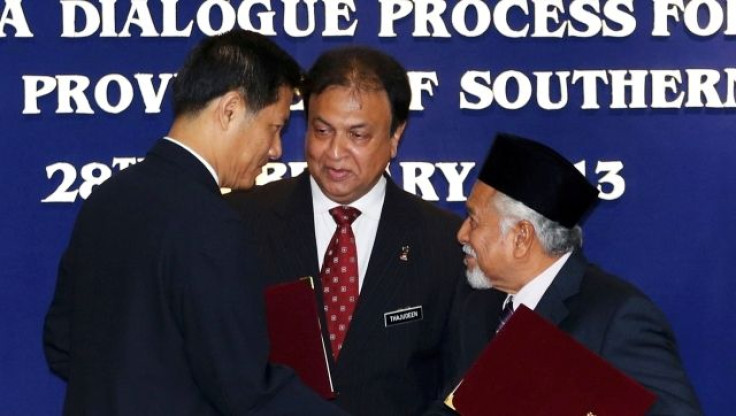Peace In Southeast Asia? Thai Government Agrees To Talks With Southern Rebels

Thailand has agreed to hold peace talks with a major Muslim rebel group operating in the south of the country where a long-simmering conflict has claimed more than 5,000 lives since 2004.
The agreement, signed Thursday by Thailand’s National Security Council and the Barisan Revolusi Nasional, or BRN, rebels in Kuala Lumpur, Malaysia, marks an unprecedented commitment from both sides to negotiate.
“This was just talks to have talks,” Sunai Phasuk, an expert on the insurgency in southern Thailand with Human Rights Watch, or HRW, said, according to the New York Times. “But it’s a very important public commitment. It’s a courageous decision.”
The talks will take place in Kuala Lumpur and are expected to begin within two weeks, according to Malaysian Prime Minister Najib Razak, whose government is facilitating negotiations between the two sides.
Previous attempts at reconciliation have failed, but the presence of senior BRN member Hassan Taib at the agreement’s signing and the mere fact that an agreement was reached at all marks the most progress toward peace to date.
“We will do our best to solve the problem,” Taib said at the signing, the BBC reported. “We will tell our people to work together to solve the problems.”
The BRN are one of several rebel groups in Thailand’s majority Malay Muslim south, which has been at the center of ethnic and religious conflicts for decades, though it was not until 2004 that a separatist insurgency began in earnest.
Rebel groups have demanded independence from the majority Thai Buddhist north, with many carrying out frequent attacks against civilians and Thai security forces.
After 15 rebels were killed in a failed Feb. 13 attack on a Thai military camp in Narathiwat province, leaflets calling for retaliation against civilians were distributed throughout the region, allegedly by affiliates of the BRN.
“We will retaliate in every way for our losses. ... From now on, we will attack and kill Buddhist Thai teachers and Buddhist Thai people. We will attack [the] Buddhist Thai community. ... One Muslim life must be repaid with 10 Buddhist Thai lives,” the leaflets read, according to HRW.
“The insurgents’ vicious campaign of violence and terror against teachers and the civilian population both violates international law and undermines their cause,” Brad Adams, HRW’s Asia director, said in a statement.
While the BRN has expressed a willingness to engage in peace talks, it is a loose association of independent factions, which may prove to be an obstacle to securing any lasting agreements that could come out of the negotiations.
“The big trouble is to identify those who are in control,” Panitan Wattanayagorn, a political science professor at Bangkok’s Chulalongkorn University, told the New York Times.
© Copyright IBTimes 2024. All rights reserved.











